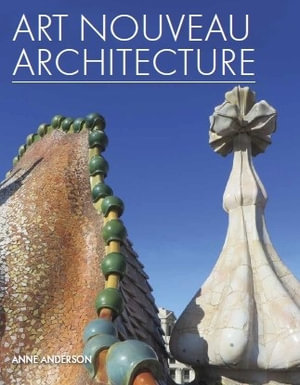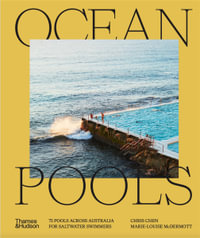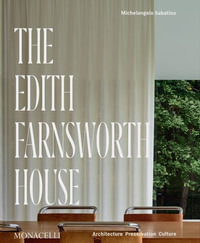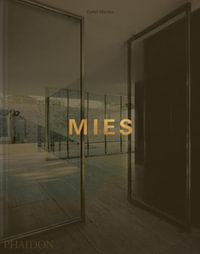Distinguished by their lavish sculpture, metalwork or tile facades, Art Nouveau buildings certainly stand out. Art Nouveau buildings are unique, audacious and inspirational. Rejecting historic styles, considered inappropriate for an era driven by progress, architects and designers sought a new vocabulary of architectural forms. Their vision was shaped by modern materials and innovative technologies, including iron, glass and ceramics. A truly democratic style, Art Nouveau transformed life on the eve of the twentieth century and still captivates our imaginations today.
Beautifully illustrated, this book explains how the new style came into being, its rationale and why it is known by so many different names: French Art Nouveau, German Jugendstil, Viennese Secession, Catalan Modernisme, Italian Liberty and Portuguese Arte Nova. It covers the key architects and designers associated with the style; Victor Horta in Brussels, Hector Guimard in Paris, Antoni Gaudi on Barcelona, Otto Wagner in Vienna, Odon Lechner in Budapest and Charles Rennie Mackintosh in Glasgow. There are detailed descriptions and stunning photographs of buildings to be found in Brussels, Paris, Nancy, Darmstadt, Vienna, Budapest, Barcelona, Milan, Turin and Aveiro.
Finally, it covers the decorative arts, stained glass, tiles and metalwork that make Art Nouveau buildings so distinctive.
About the Author
Art Historian, lecturer, exhibition curator and broadcaster, Dr Anne Anderson FSA has studied Art Nouveau architecture and interior design for over thirty years. She has travelled extensively studying and photographing Art Nouveau buildings. Author or editor of seven books, Anne's research is widely published in learned academic journals, exhibition catalogues and popular magazines. She has curated six national exhibitions, the most recent being Beyond the Brotherhood: The Pre-Raphaelite Legacy .
Her career as an international speaker has taken her all over the world, including, Australia, New Zealand and the USA.
335 colour and 26 b/w photographs
























